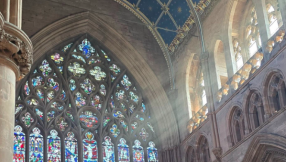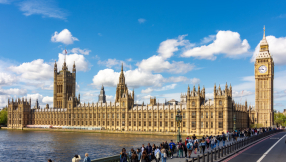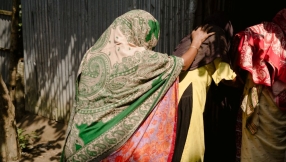Lord Alton of Liverpool has said that the martyrdom of 21 Christians by ISIS "demands a better response" from the world to the ongoing persecution and genocide of religious minorities.
Twenty of the men executed on the beach on 15 February 2015 were Coptic Christians from Egypt. The other martyr was Matthew Ayariga, a Christian from Ghana. They were beheaded by Islamic State militants after refusing to renounce their faith.
Lord Alton said their faith and sacrifice must never be forgotten.
"We should certainly try to forgive but not to forget," he said. "Forgiving and remembering is very different from Jihadist calls to revenge and the promotion of an ideology based on the hatred of difference."
The crossbench peer said that love was the "antidote to the hatred represented by those who would disguise their identity in black masks and then on a beach in Libya, in murderous cold blood, execute a group of men working overseas to support their loved ones in Egypt".
It was also the antidote, he said, to the actions of the Liverpool suicide bomber who tried to commit another atrocity on Remembrance Sunday last year "in the name of a twisted ideology based on a distorted view of religion with no regard to the injunction against shedding innocent life and based on hatred rather than love".
Lord Alton said that while forgiveness was important, those responsible for doing evil should nonetheless be brought to justice and held accountable.
He called on governments and individuals to stand in "common humanity" with persecuted religious minorities, including Christians, Uyghurs and Rohingya.
He paid particular tribute to the "extraordinary act of love and solidarity" shown by Matthew Ayariga in choosing to die alongside his Egyptian brothers, which he said "stands as a rebuke to us all who remain silent in the face of the persecution of 250 million Christians worldwide".
"His act of extraordinary solidarity shames so many of us when we consider our tepid response – often based on political expediency, institutional considerations, or trade and business – to the persecution which is experienced by religious and ethnic groups the world over – discrimination that morphs into persecution; then persecution which morphs into crimes against humanity; and then ultimately into the crime above all crimes, genocide," he said.
He added, "Heroic bravery in the face of evil demands a better response from us – even if it is only a pale imitation of the remarkable act of solidarity by Matthew Ayariga on that deadly beach in Libya in 2015.
"When Matthew Ayariga stood with his Coptic brothers, he did so in an uncommon, atypical, display of common humanity. Are we willing to do the same?"













